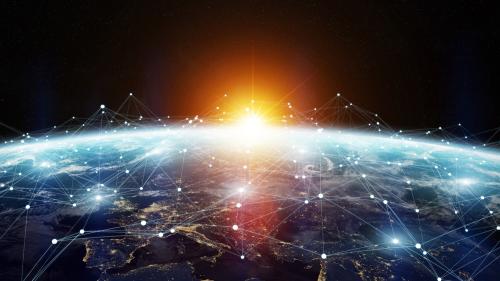Content from the Brookings Doha Center is now archived. In September 2021, after 14 years of impactful partnership, Brookings and the Brookings Doha Center announced that they were ending their affiliation. The Brookings Doha Center is now the Middle East Council on Global Affairs, a separate public policy institution based in Qatar.
This article was originally published on The Globe and Mail.
One does not want to add to the “sky is falling” predictions that a Donald Trump presidency might usher in, but when it comes to the global economy, there are worrying signs that his administration will bring renewed economic volatility.
The new President already uses Twitter recklessly to play with market confidence. There are even more worrying signs that Mr. Trump will deregulate financial markets in favour of Wall Street. This coincides with a surge of capital entering the United States (the rest of the world looks even less stable), making Chicken Little predictions worth listening to.
Behind the economic nationalism and populism of Mr. Trump’s economic-policy agenda (if one can call it an agenda) is a man who knows no limits, be it in his tweets, ill-chosen words or his jibes at industries and company leaders. When he tweets about an industry, be it auto makers, pharmaceuticals or media, the market often reacts accordingly. When Mr. Trump takes a swipe at, say, Amazon or General Motor executives, it is no wonder that the market is shaken up. But these are not the cracks in the sky that we ought to focus on.
While stock markets react to news gyrations in the same hot-and-cold manner that Mr. Trump tweets, there is something more worrying and structural that is about to take place that ought to really keep us awake: the deregulation of the financial industry.
Nearly 10 years ago, the U.S. financial industry was exposed as a glorified Ponzi scheme that bundled toxic assets and failing mortgages into seemingly respectable pension plans and investment schemes that were sold across the world. The Obama administration spent its first term, with global support of the G20 and other countries focused on tighter international standards, to introduce regulations that the financial industry bitterly fought but lost. These regulations, loosely known as the Dodd-Frank act in the U.S. Congress, are about to be dismantled, bit by bit.
These Dodd-Frank rules and regulations angered Wall Street firms that regulated assets and debts to make the financial industry operate within stricter reserve ratios and greater oversight and government supervision. Goldman Sachs was among the Wall Street firms that fought and lost against the Obama administration’s Dodd-Frank bill, and was also the target of Mr. Trump’s rhetoric on the campaign trail. But at least four of its former executives are now among those slated to take key economic cabinet posts in a Trump presidency. U.S. banks and investment firms have seen their stocks surge at the possible breaking down of these hated regulations.
But it can get worse. In an era of what economists call secular stagnation, where we have a global savings glut, fewer global investment opportunities and low interest rates, global money is also pouring into the United States on expectations of a surge in infrastructure spending, a clampdown on offshore corporate tax havens and the lowering of Dodd-Frank financial regulations.
This is coinciding with global money leaving many emerging market economies that look geopolitically unsettled, such as Turkey, and those rattled by Mr. Trump himself, such as Mexico. With a euro zone that looks shaky in a post-Brexit era and experiencing a rise of nationalists competing in a slew of upcoming elections, ironically, the U.S. still manages to look like the safest investment for the capital industry. Meanwhile Chinese plutocrats are charging Communist Party members with corruption as President Xi Jinping conveniently also consolidates his hunger for centralized power, causing another slow exodus of Chinese wealth.
Here we have the perfect storm brewing of hot money going into the United States in search of higher interest rates and the likely dismantling of financial regulations meant to place a check on speculative bankers and investors. The end result might just be that we return to the same conditions of the mid-2000s, the eve of the international financial crisis. The sky is not yet falling, but the cracks are getting wider and wider and we ought to start listening to Chicken Little on the global economy.
The Brookings Institution is committed to quality, independence, and impact.
We are supported by a diverse array of funders. In line with our values and policies, each Brookings publication represents the sole views of its author(s).




Commentary
Op-edTeam Trump sets stage for another Wall Street meltdown
January 20, 2017